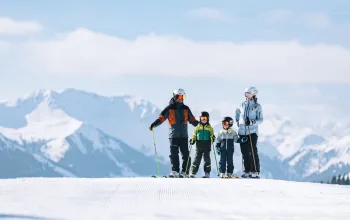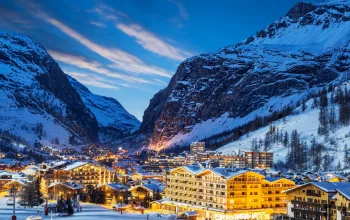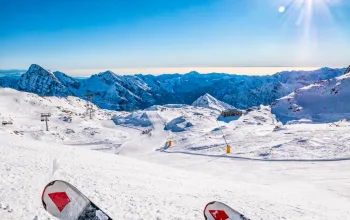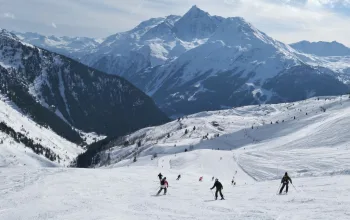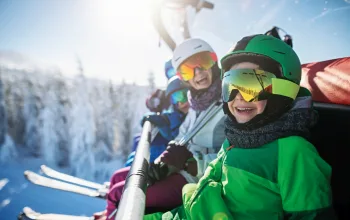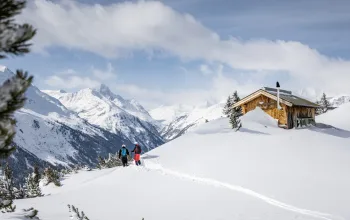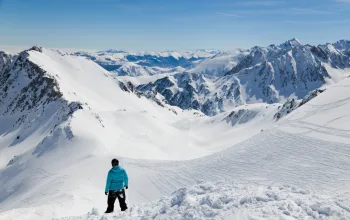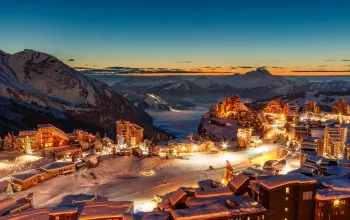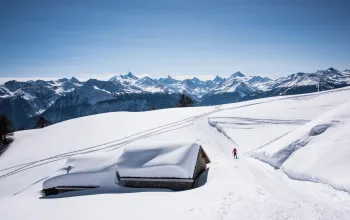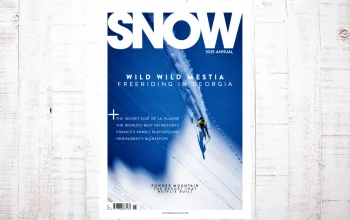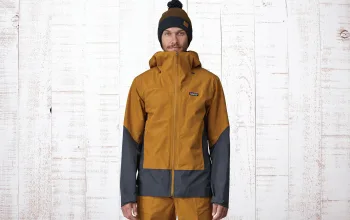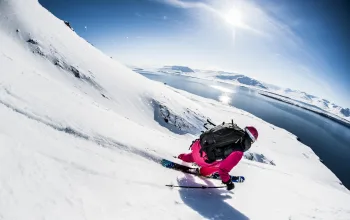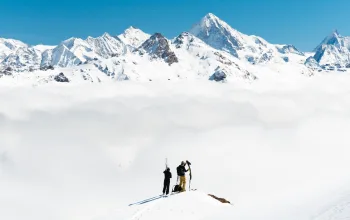Reports of the demise of skiing may be exaggerated, but the mix of variable winters and a stubborn economy have seen skiing stripped down to its core of those who go come what may. Without new blood, we are now in danger of losing a whole generation to the sport we all love. The key to reversing the decline of the past few years is to encourage new skiers.
How much have things changed since you started skiing? How much easier is it for youngsters now to get into the sport?
I first skied in Scotland in 1971 with my family when I was five and my brother Martin was six. My parents were beginners at the same time. Scottish skiing was booming at the time, with lots of good snow years in the Cairngorms. It was not as easy to learn then as it is now – we started in old leather boots and skis that were so long that even most adults would not use them now. The equipment is so much easier now, the shaped skis make the progression from snowplough turns to parallel skiing much quicker. I believe the best way to start skiing is to visit one of the indoor snow slopes in the UK, or, if they are not convenient, then look for a nearby dry ski slope. Youngsters who are fit and have good balance and coordination from other sports should take to skiing very quickly and expect to be skiing on red and blue runs by the end of a week in the mountains.
And what about adult beginners wondering about booking a first family ski holiday? How different is it for adults/latecomers to get started?
Generally if you start skiing at the same time as your kids you will have the initial advantage of understanding and actually listening to the instructor! But this is short-lived and you should expect your kids to be better than you within a couple of ski trips, depending on their age of course.
What do you think needs to happen to bring in new skiers?
The whole of the ski industry in the UK should be looking for new ways of attracting people to skiing. Families are the best target group because if you can convert mum and dad, then the kids will grow up with the skiing bug. The tour operators obviously have a big role to play, but everyone should be mindful that beginners are the ski industry’s bread and butter.
 What about the cost? How do you minimise expenditure at least until you’ve decided whether skiing is for you?
What about the cost? How do you minimise expenditure at least until you’ve decided whether skiing is for you?
Package deals represent the best options for the novice skier; most tour operators do deals that include ski hire, lessons and lift tickets, when you get good enough to need them. Importantly, a lot of ski resorts allow free use of the learn-to-ski lifts – they also know it’s in their best interest to get people trying the sport.
When should you buy your first boots, and skis or snowboard?
If you are a novice or if your kids are growing so fast that they will need new ski boots each season, the best advice is to rent the hardwear: ski, boots, poles, helmet etc, until you’ve reached a more settled phase and your kids have stopped growing! If you are buying a ski jacket and ski pants I would look for something that can be worn in the UK in winter as well as on the slopes, you do see some fantastically garish and expensive ski jackets in the shops, but there are low expense options like Nevica, for example.
Any sign that the Olympic sporting boost will extend to skiing?
Hopefully people will watch the 2014 winter games in Sochi. One of the big hits could well be the Slopestyle events, which are basically skiing or riding down a succession of jumps similar to what you would find on any fun-park and hitting the kickers and doing tricks. And happily we have two youngsters who are amongst the best in the world, five times British freestyle cxhampion James Woods in Skier Slopestyle and Ben Kilner in Snowboard Slopestyle. They are bound to be an inspiration to a lot of youngsters. I’m optimistic that skiing has a bright future.
At home
Since retiring from ski racing in 1998, Graham has had a successful media career. He now presents BBC Ski Sunday, and works as a part-time coach. He is a brand ambassador for Nevica, and also supports the Special Olympics, Disability SnowsportUK, Snowcamp, and the Caring Cancer Trust, taking people to enjoy the mountains who otherwise might struggle.




